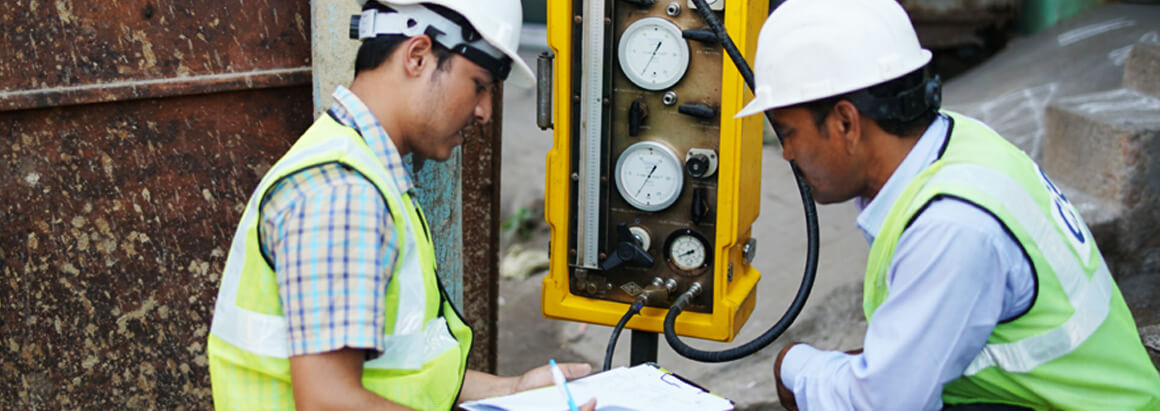Contact Info
-
-
- Phone +91-141-4046599
- Mobile +91-98297-46596
- info@cegtesthouse.com
-
Ask The Expert
Geophysical and Specialized Services

Pressure Meter Test (Menard-80 Bar & OYO-200 Bar)
The Pressure Meter Test is performed in both Soil & Rock as per IS 1892, ISRM, IS: 12955 (Part-2). This test provides the in-situ stress-strain response of the soil & rock medium, which in turn provides the Modulus of Elasticity for use in geotechnical analysis and design models like Settlement Behavior under Heavy Loading, Tunnel & its Lining Design, etc.
Cross Hole & Down Hole Seismic Survey
Cross Hole & Down Hole Seismic tests are performed to obtain the dynamic properties of strata (like Modulus of Elasticity, Poisson Ratio, Shear Modulus, etc.) by measuring the shear & compression wave velocity. These properties are required for the vibration analysis and design of dynamic foundations in various cases such as the construction of tunnels, operation of metro, and to support any vibratory structure/equipment under industrial plants and refineries, etc. This test is done as per the ASTM D- 4428.
Block Vibration Test
Block Vibration Test is performed to determine the in-situ dynamic properties and damping characteristics of soil for foundations, supporting reciprocating machines, compressors, large electric motors or generators, etc., which are subjected to vibrations. This test is done as per IS 5249 by generating vibrations on the concrete block at the desired depth, and results are analyzed to get the dynamic properties.
Seismic Refraction Survey
Seismic Refraction Survey is used to visualize the subsurface strata and its compactness state for recommending the appropriate method of rippability/excavatability & its required tools. This test is commonly used in rocky terrain and also where the conventional investigation is not feasible to assess its precise excavatability methodology as per the respective ground conditions.
Electrical Resistivity Test
The electrical resistivity of the subsoil has a specific application in the design of grounding systems. Based on electrical resistivity values, subsoil is classified for corrosive properties and its aggressiveness.
Apparent electrical resistivity is obtained at different depths by measuring the resistance as per IS 3043 & 1892. The depth at which current enters a formation of higher or lower resistivity is signaled by a change in the resistivity recorded at the ground surface. Subsurface formations can be identified by a proper interpretation of the resistivity data.
Slope Stability Analysis
The slope stability analysis is done for both soil & rock using geotechnical software like ReSSA & others, by verifying all the possible stability failure cases, including respective strata condition and global/local condition, and provision of berms as well.
We have successfully performed stability analysis for various infrastructure projects, mainly in the Highways sector.
Foundation Recommendation
CEGTH has a team of experienced professionals who can provide customized & optimized foundation recommendations based on subsurface conditions and its proposed structure. Further, as a professional geotechnical consultant, we can assist in proposing all types of shallow and deep/pile foundations suitable for strata conditions and structural requirements.
Liquefaction Analysis
Liquefaction refers to the phenomenon where soil loses its strength due to a sudden increase in pore water pressure and starts behaving like a flowing medium. It occurs due to seismic events by an earthquake. In general, liquefaction occurs in loose to soft soil having the presence of water level. Its analysis and potential mainly depend on the subsurface strata condition (from geotechnical investigation data) and seismic event details.
CEGTH offers in-house expertise to perform liquefaction analysis and related recommendations.
Ground Improvement Recommendation
In case the existing soil cannot meet the required structural loading, suitable ground improvement for the needed/planned depth is done to increase the bearing capacity and to take care of the liquefaction effect.
The selection for ground improvement recommendations can be made by considering the strata type, condition, and structural requirements.
Vibratory Foundation Recommendations
CEGTH acquires in-house expertise to provide various geotechnical tests and analysis interpretation (Vp, Vs, Ed, G, µ, etc.) for vibratory foundation recommendations, which is applicable in machine foundation and to support any vibratory structure/equipment under Industrial Plants and Refineries, Tunnels, Operation of Metro, etc.
